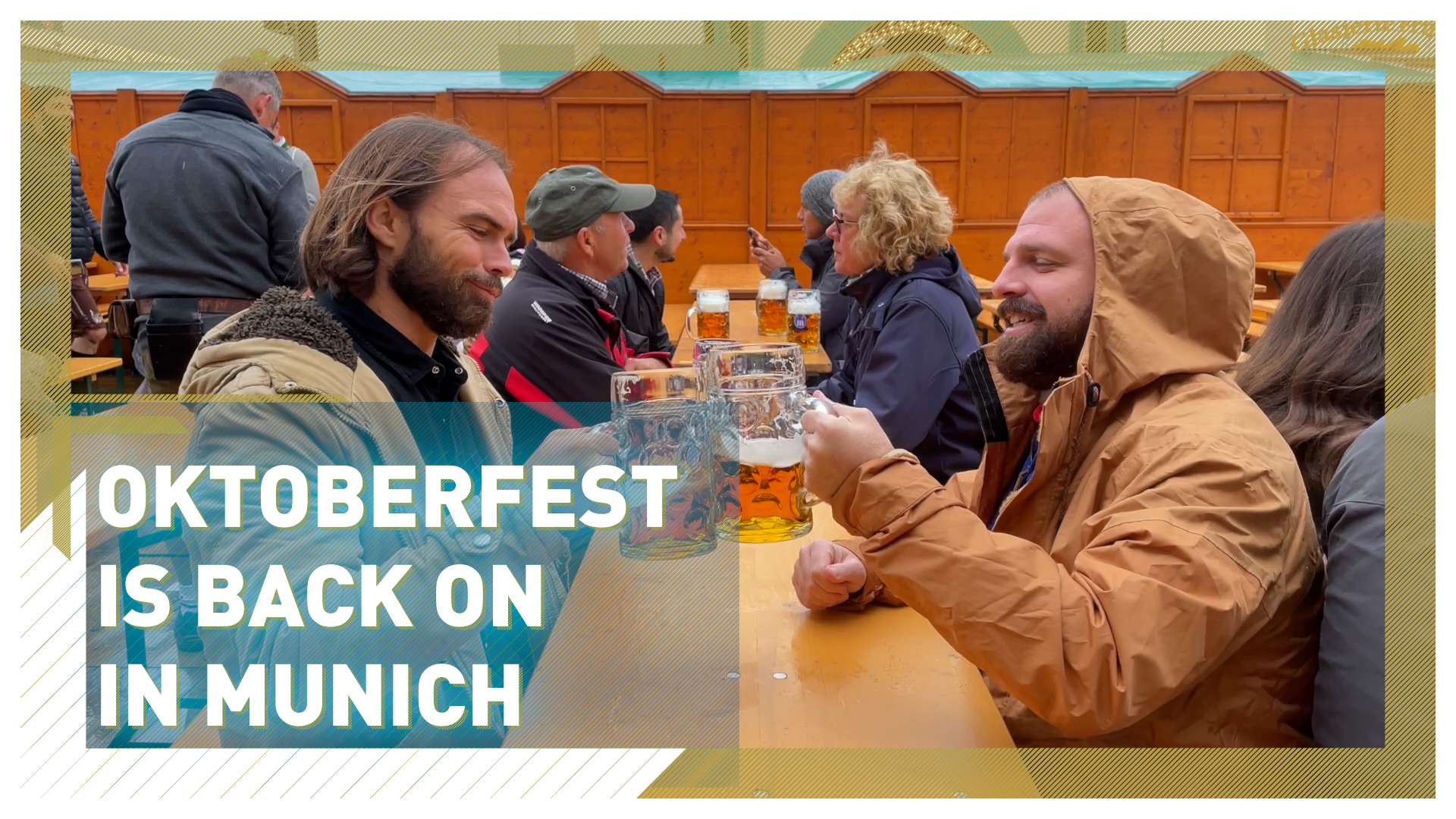03:04

With the firing of the traditional cannons - the gates of the 187th Oktoberfest opened in Munich to a flurry of excited revelers. Many were dressed in traditional Bavarian Tracht - Lederhosen for the men and Dirndls for the women.
After two years of closures due to COVID-19, even the rain failed to dampen the spirit of those attending the festival.
"The rain is kind of a bummer but inside the tent you don't even notice it," expressed U.S. tourist Catherine Dirken who, along with her husband, marked the end of their European honeymoon by attending the festival.
Like many others, they had been waiting two years to attend Oktoberfest, but pandemic-related restrictions prompted the city of Munich to postpone the festival in 2020 and 2021.
READ MORE
The life and times of Queen Elizabeth II
Global leaders pay tributes to UK monarch
Mid-Autumn Festival poetry
With the pandemic somewhat under control globally, the premiere of the state of Bavaria, Markus Soder, is happy to see the festival return.
"I am very happy. I have campaigned hard for it to take place. We need joie de vie, we need tradition and we need support," he told reporters during the traditional tapping of the first Oktoberfest keg, which marks another start to the 13-day festival.
"And that is why I am very happy that the Wiesn (Oktoberfest) is taking place again. It is a magnificent festival, a great brand for Bavaria and we are very proud that it can take place again," added Soder.

More than 50 surveillance cameras have been installed, while around 800 police and 1,000 security staff have been deployed to monitor the crowds. /Natalie Carney/CGTN
More than 50 surveillance cameras have been installed, while around 800 police and 1,000 security staff have been deployed to monitor the crowds. /Natalie Carney/CGTN
This year close to 500 beer tents, wine vendors and restaurants, along with fish and meat grills, are being hosted on the 42 hectares of Oktoberfest grounds.
There are also traditional rides and shows awaiting all those young at heart.
To ensure security, more than 50 surveillance cameras have been installed, while around 800 police and 1,000 security staff have been deployed to monitor the crowds.
'People may still be scared'
Despite the two-year hiatus, expectations for this year's event are rather low. While there is excitement to experience the sights and sounds, there could also be some apprehension about returning to large crowds, says Jenny Webber, one of the 12,000 employees of this year's Oktoberfest.
"I really don't know what to expect this year," Webber told CGTN ." We have a lot of people from the U.S., Italy and Spain and we don't know what the travel conditions are to get them here. People may also still be scared."

This year's festival will run one day longer to coincide with a national holiday on October 3, German reunification day. /Natalie Carney/CGTN
This year's festival will run one day longer to coincide with a national holiday on October 3, German reunification day. /Natalie Carney/CGTN
There are no mask or hygiene regulations at this year's festival, which has prompted some medical advisors to predict a spike in COVID-19 cases during and following the festival. Yet those concerns did not seem to be affecting the spirit of those braving the rain at the opening day.
In 2019, around six and a half million guests from all over the world visited Oktoberfest and brought in over $1.2 billion to the city of Munich. This year, however, inflation and rising energy costs will have an impact on revenue.
For one, the price of a traditional liter of festival beer has gone up 15 percent to $14, while energy-saving measures will also be implemented - outdoor patio heating seen in previous years will no longer be available. But this year's festival will run one day longer to coincide with a national holiday on October 3, German reunification day.

